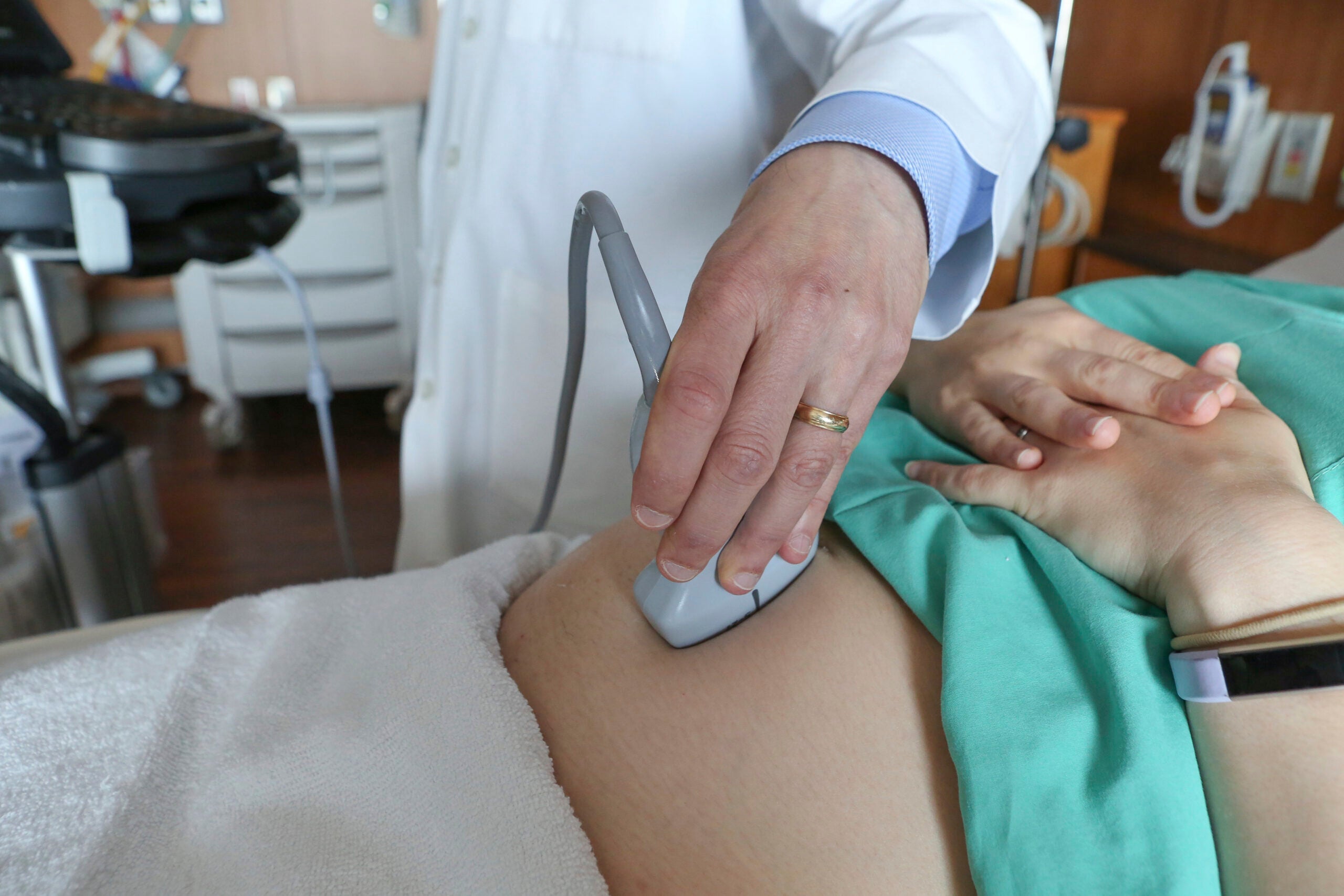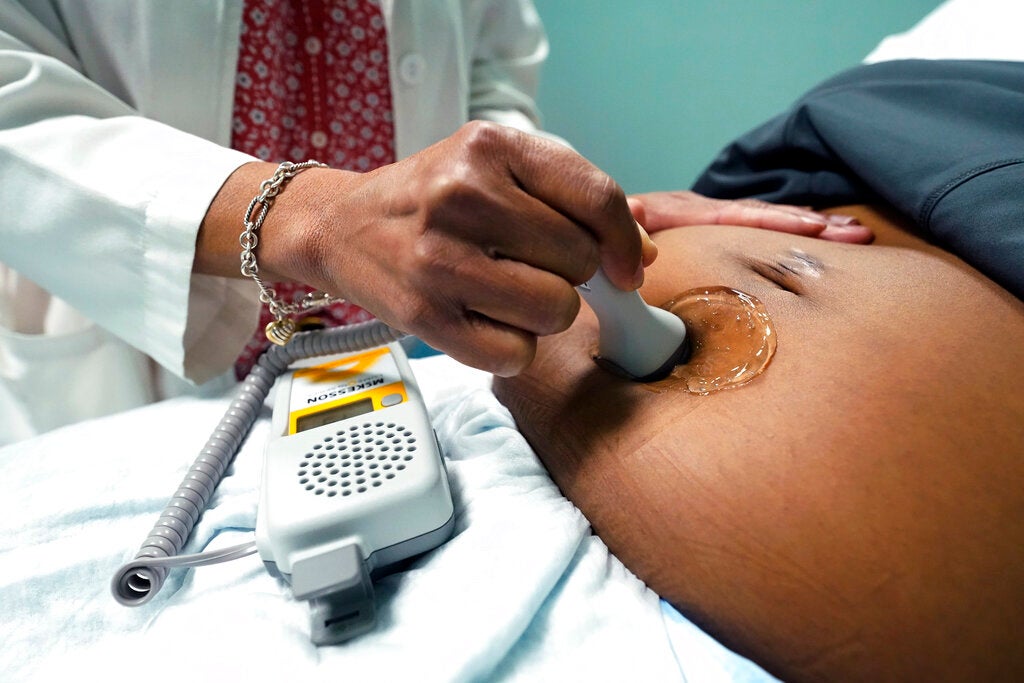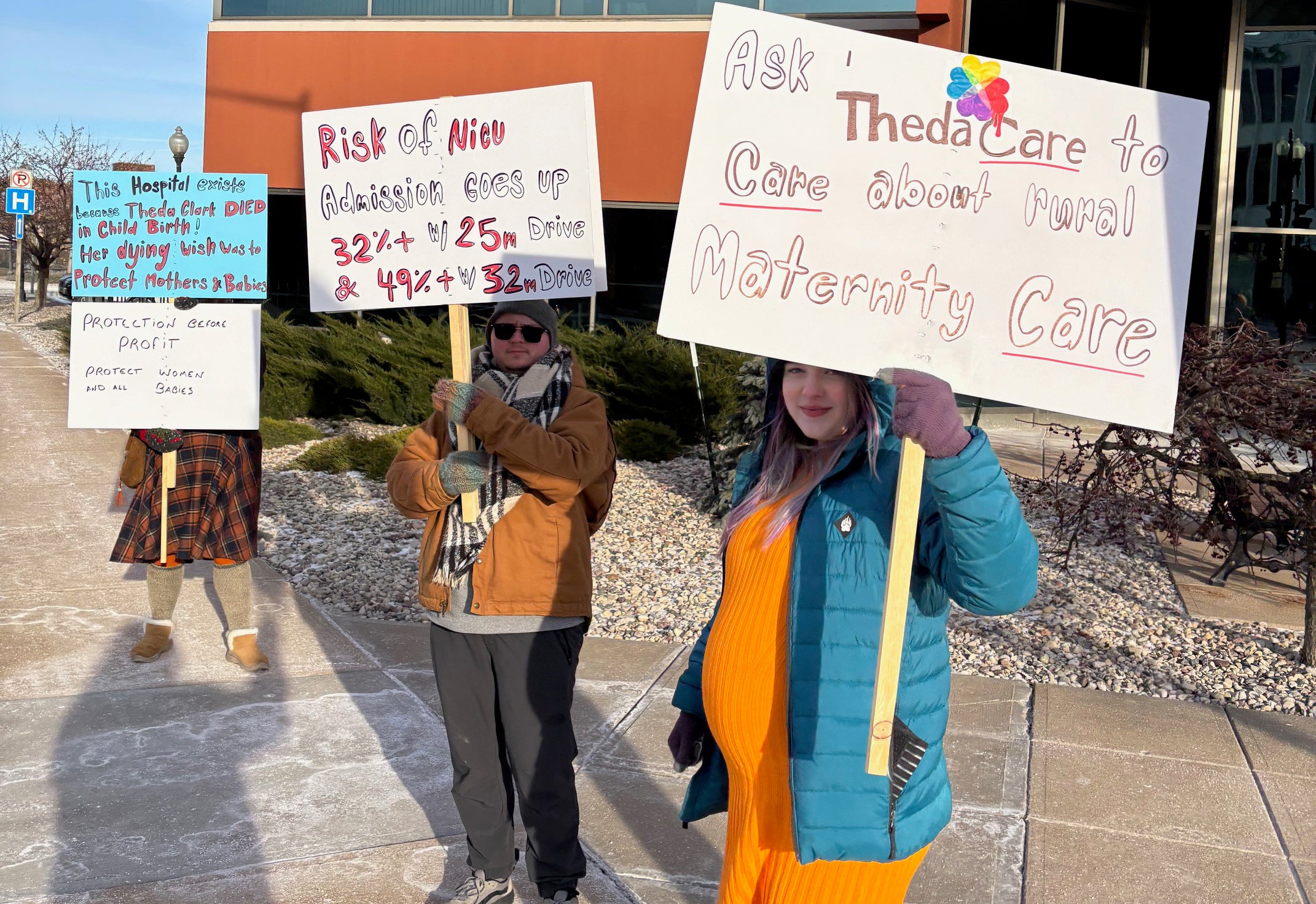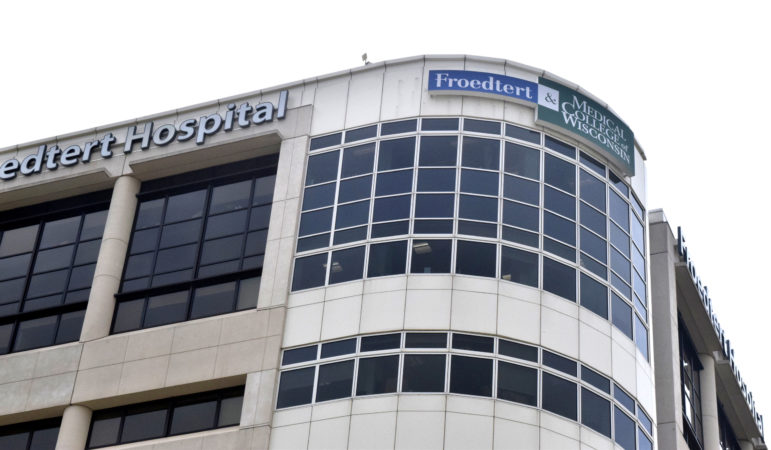Things have been a blur since 2020. The last few years have been marked by a contentious political climate and the ongoing COVID-19 pandemic.
In 2022, we saw the overturning of Roe v. Wade, trials related to the Jan. 6 insurrection of 2021 and a national increase in labor organizing. Stories from years past that progressed into 2022 include more frequent natural disasters due to climate change, skyrocketing inflation, the continuing war in Ukraine and a raging “tripledemic.”
This year in Wisconsin, Gov. Tony Evers and U.S. Sen. Ron Johnson were reelected for another term and Darrel Brooks Jr. was sentenced to lifetimes in prison for driving an SUV through the Waukesha holiday parade in 2021. The state also passed its first ever standards for PFAS while residents pushed for more action. And since Roe v. Wade was taken off the books, debates have continued over the enforcement of Wisconsin’s 19th-century abortion ban.
News with a little more humanity
WPR’s “Wisconsin Today” newsletter keeps you connected to the state you love without feeling overwhelmed. No paywall. No agenda. No corporate filter.
While some of that is reflected in the list below, Wisconsin Public Radio’s top 10 stories of 2022 include a few outliers, proving that no matter the world’s chaos, sometimes we choose what drama we get caught up in (i.e. hospital mergers, golf course investments and insects), for better or worse.
Here’s a list of some of the most popular stories of the year, calculated using Google Analytics data from Jan. 1, 2022 to Dec. 18, 2022.
1. ThedaCare loses court fight to keep health care staff who resigned

The epidemic of health care worker shortages hit a northeastern Wisconsin hospital hard as it battled to force staff who had resigned to stay on until replacements could be found.
In January, WPR reported on a civil court case between ThedaCare and Ascension Wisconsin. Seven staff members resigned from ThedaCare’s radiology and cardiovascular teams, opting to leave for jobs at Ascension’s St. Elizabeth Hospital in Appleton.
ThedaCare filed a lawsuit against those employees, and asked for an injunction to block them from starting their new jobs. Lawyers for ThedaCare said the facility “will not have adequate staffing to treat trauma and stroke victims — some of whom will die as a result of the lack of timely care.”
Ascension said during the hearing that ThedaCare knew about the staff resignations and had plenty of time to find replacements.
Outagamie County Circuit Court Judge Mark McGinnis temporarily issued the injunction on Friday, Jan. 21, until a court hearing the following Monday. After that hearing, McGinnis decided ThedaCare couldn’t force workers who had resigned to stay until replacements were hired.
2. Hospital merger could affect 2M patients in Wisconsin, 3 other Midwest states
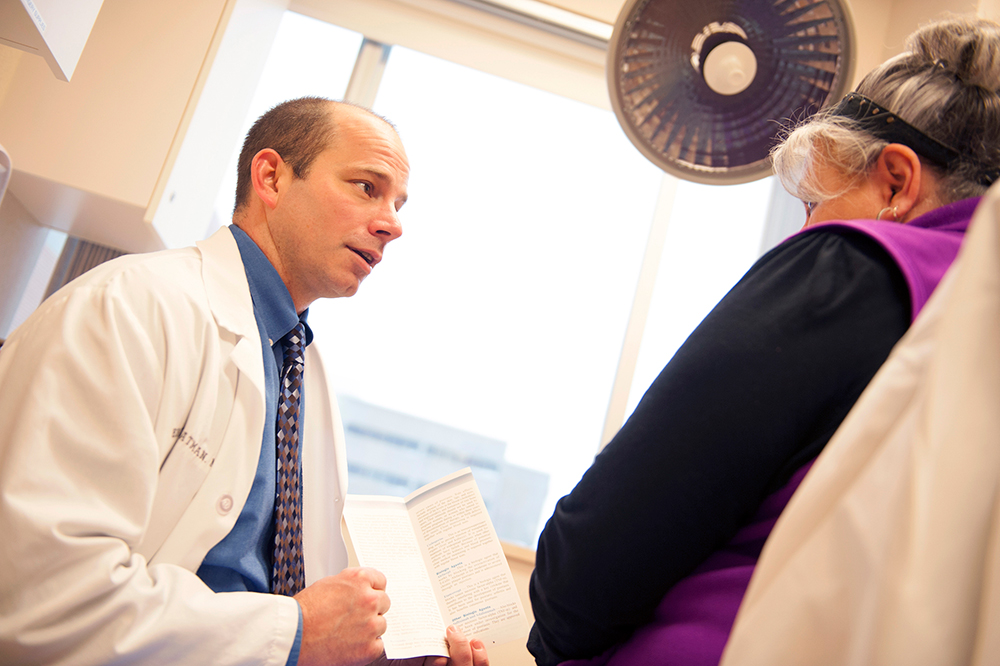
Marshfield Clinic Health System and Essentia Health have been in talks about merging their hospitals and clinics in a move that officials said would provide patients with better access to primary and specialty care.
Wisconsin-based Marshfield Clinic would bring 1,600 providers to the merger, according to a WPR report in October. Combined, Marshfield Clinic and Minnesota-based Essentia Health would pull together 3,500 providers at more than 150 sites across Wisconsin, Minnesota, Michigan and North Dakota.
The two health systems signed an agreement on Oct. 12 to explore the possibility of forming an integrated health system.
About 2 million people would be affected by the merger.
Though officials tout the merger would bring better access to patients, health care mergers have been shown to lead to higher prices for commercially-insured patients, according to a 2020 study by Harvard Medical School scientists.
But Brian Potter, senior vice president of finance and chief operating officer for the Wisconsin Hospital Association, said that hasn’t been an issue in Wisconsin. In fact, he said hospital mergers can be advantageous for small, independent hospitals in rural communities who are joining larger health systems.
3. 23-year-old man buys Wisconsin golf course, hopes to attract younger generation to golf

Tyler Luedtke considered the idea of buying the Sir Lanserlot Golf Course in Plymouth when he was at the University of Wisconsin-Whitewater. And he did it.
For $1.6 million, Luedtke purchased the 18-hole golf course from Dale Lanser, who owned the Sheboygan County course for 16 years.
Luedtke told WPR’s “The Morning Show” his goal is to appeal to a younger audience, and make the company family-friendly and easygoing.
“Our goal and one of our driving factors is to try to make the course appealing for people of all skill levels,” he said.
Back in August, Luedtke told “The Morning Show” he has had help from a lot of people. His grandparents cleaned up the clubhouse and planted flowers, and his parents trimmed trees. One thing he said he was making a point of doing: Listening to the community.
“Don’t just write them off right away,” he said. “But hear what people are thinking and see what we can do to work together with the community to make it that awesome environment for everybody.”
4. Wisconsin sees 2 major hospital mergers finalized back to back

Millions of Wisconsin residents will be affected by two separate mergers of nonprofit hospital systems finalized this month.
Gundersen Health System and Bellin Health completed a merger Dec. 1. Advocate Aurora Health and Atrium Health did the same Dec. 2.
Bellin and Gundersen will keep their respective names for the time being and separate headquarters in Green Bay and La Crosse. Advocate Aurora and Atrium will become Advocate Health.
The mergers will impact about 8.5 million patients across several states.
Hospital officials say the deals are aimed at improving patient care, and stem from organizations sharing similar missions and visions. But the mergers also have the potential to give hospitals more leverage to negotiate for higher prices with insurance companies.
A UW-Madison economist said mergers may give hospitals more leverage in negotiations with insurance companies. The economist said insurance companies want to pay as low a price as they can negotiate, while health care providers want to get paid as much as they can negotiate. If health systems can negotiate for higher rates, it could raise prices for patients.
While health care mergers have the potential to increase costs for patients, they could also enhance services, Wisconsin Hospital Association Vice President of Finance and Chief Operating Officer Brian Potter said.
5. No Wisconsin clinics are providing abortions as of Friday after SCOTUS struck down Roe v. Wade
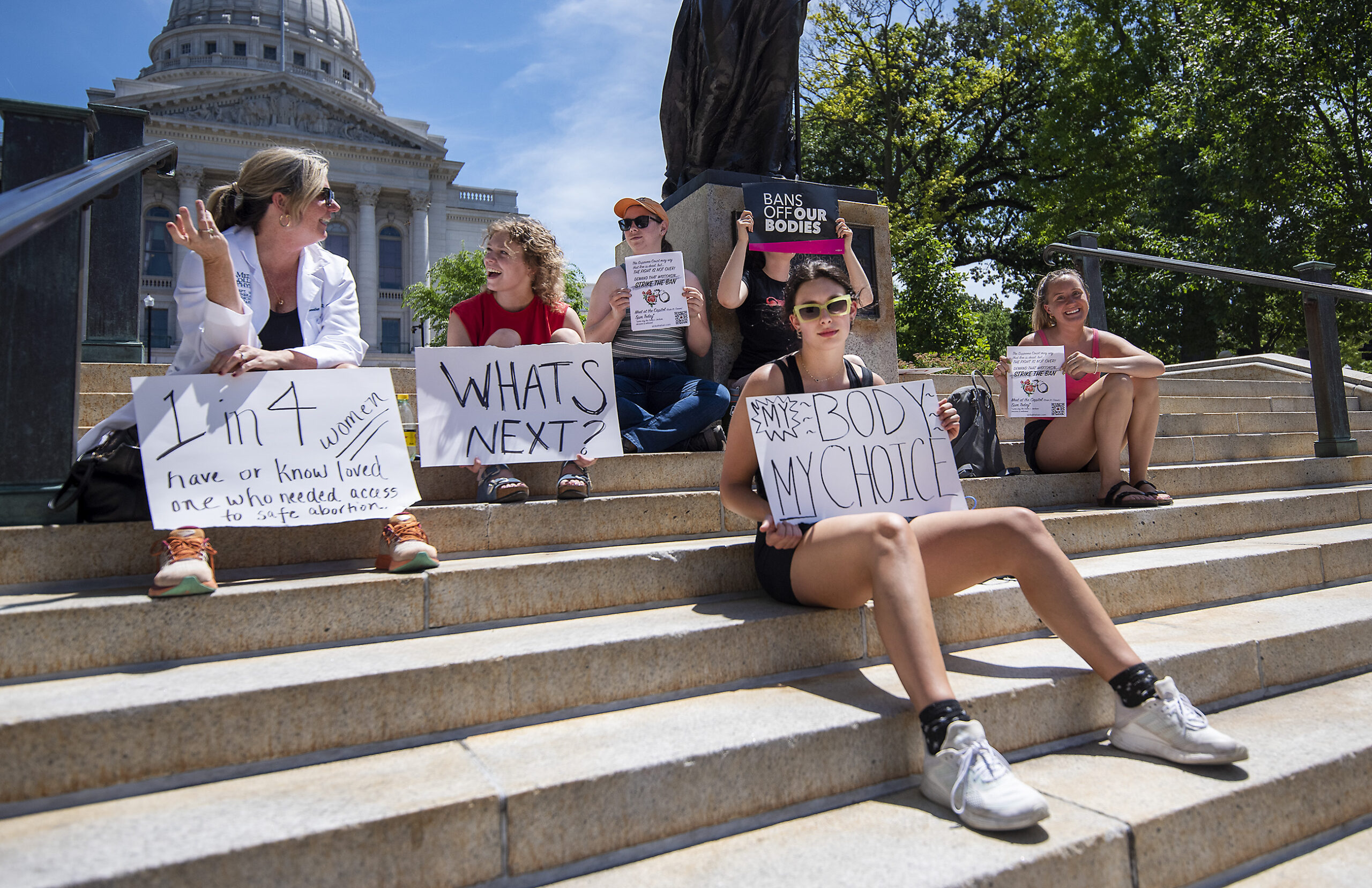
The same day the U.S. Supreme Court overturned Roe v. Wade, nearly all abortions became illegal in Wisconsin.
In Wisconsin, the state’s 19th century abortion ban is the law of the land, making an abortion illegal unless deemed medically necessary to save a pregnant person’s life.
Tanya Atkinson, president and CEO of Planned Parenthood of Wisconsin, said the agency was immediately forced to suspend abortion services.
Representatives from some abortion-rights organizations told WPR in June that they were already working on creating partnerships with organizations in states where abortions are still legal under state law. That work began after the draft opinion indicating the court was poised to overturn Roe was leaked. The partnerships are aimed at helping with scheduling, financial assistance, travel, lodging and child care for people traveling out of state for an abortion.
For social conservatives, the decision represented a historic victory in a decades-long battle. In a statement, the Brookfield-based Pro-Life Wisconsin celebrated the overturning of Roe.
Wisconsin Attorney General Josh Kaul said he would not enforce the state’s abortion ban when the draft opinion was leaked. Still, local law enforcement officials can.
Gov. Tony Evers attempted to repeal the state’s abortion ban prior to the SCOTUS decision. But Republican lawmakers rejected the special session.
6. Police investigate possible arson at anti-abortion organization in Madison
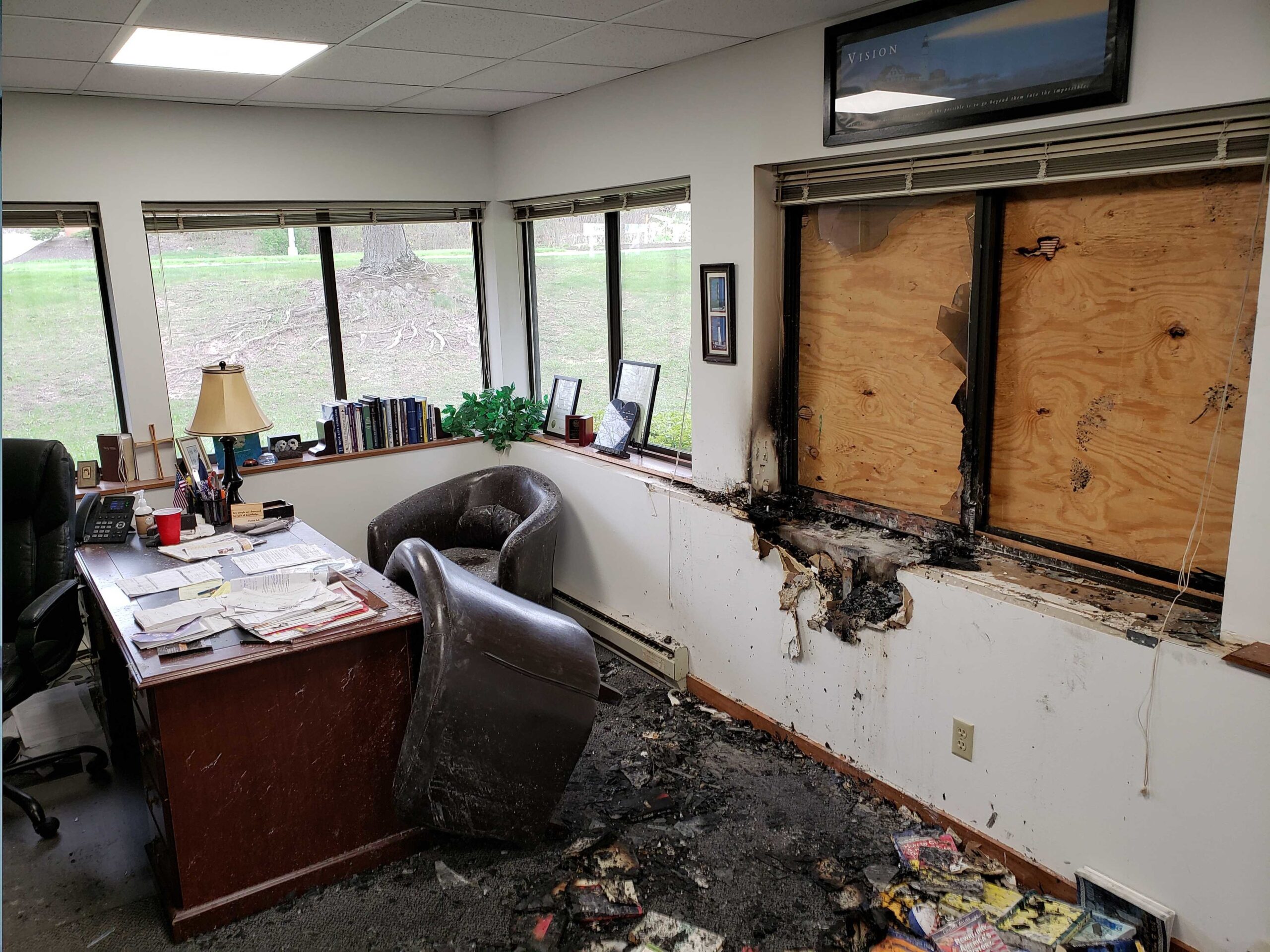
In May, just days after the release of a leaked draft opinion that would overturn the landmark abortion rights case Roe v. Wade, police and firefighters began investigating suspected arson at the Madison headquarters of an anti-abortion group.
Windows were broken and the inside of an office at Wisconsin Family Action was burned. A graffiti message spray-painted on the outside of the building read: “If abortions aren’t safe, then you aren’t either.”
A Molotov cocktail, that did not ignite, was thrown inside the building and a separate fire was then lit, according to Madison police. There were no reported injuries.
Madison Police Chief Shon Barnes released a statement saying it appeared Wisconsin Family Action was targeted. The FBI and the federal Bureau of Alcohol, Tobacco and Firearms are also conducting an investigation of the incident.
The investigation is ongoing, and no arrests have been made, according to the Wisconsin State Journal.
7. ‘Gutted and broken’: As he awaits sentencing, Darrell Brooks Jr. hears from the Waukesha Christmas Parade tragedy victims
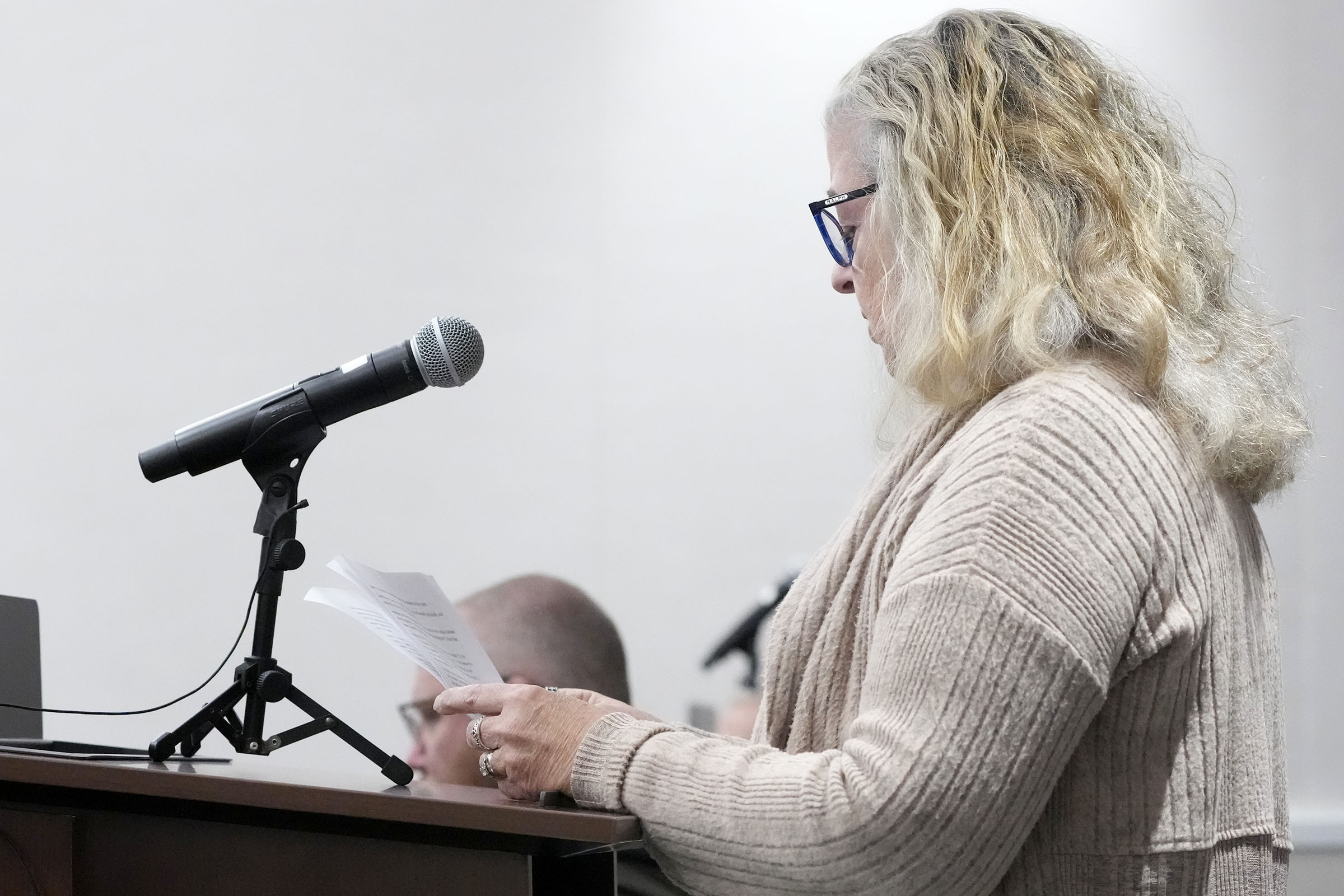
One of 2021’s most tragic stories led to a series of articles this year following the trial of Darrell Brooks Jr., who was convicted in November of first-degree intentional homicide for plowing through a crowd during the Waukesha Christmas Parade.
Victims of Brooks’ actions on the day of the parade shared testimony for hours during his sentencing hearing in November. Testimonies came from children who were struck by the vehicle Brooks was driving, parents who frantically searched for their children among the injured and Sheri Sparks, the mother of 8-year-old Jackson Sparks who was the only child among six people killed.
Sparks explained how she ran through the crowd searching for her two sons. She saw a police officer carrying Jackson to treatment. She found her other son, Tucker, semi-unconscious under a blanket in the road.
“We came so close to losing them both that day,” Sparks said. “I miss Jackson every second of every single day. I feel gutted and broken. It hurts to breathe sometimes. It hurts to live without him here. My mama’s soul aches for him. I am emotionally and mentally exhausted. The pain I carry with me every day feels so heavy, yet I have to push forward and still be here to help Tucker heal.”
Brooks was given six life sentences, one for each person killed, and an additional 762 years in prison for recklessly endangering safety.
8. Attorneys urge Gov. Evers to grant clemency to Brendan Dassey

In 2007, Brendan Dassey, who was 17 years old at the time, was convicted and sentenced to life in prison for the sexual assault and murder of Teresa Halbach. The case is the focus of the Netflix documentary “Making a Murderer.”
But the conviction hinged on a confession from Dassey that lawyers argued was false and coerced, and many argue Dassey is innocent.
In March 2022, attorneys for Dassey’s uncle, Steven Avery, issued an open letter to Gov. Tony Evers, urging him to commute Dassey’s sentence.
According to the letter, police falsely told Dassey they would charge him unless he helped “fill in the gaps” left by Avery, who was convicted in Halbach’s murder. Police told Dassey they would protect him in return, the letter said.
Dassey is now in his early 30s and is not eligible for parole until 2048.
9. Northern Wisconsin expecting 12 to 24 inches of snow Monday and Tuesday

Most, if not all, of Wisconsin has snow on the ground right now.
This February story takes us back to when meteorologists predicted northwest Wisconsin could get 10 to 18 inches of snow over two days — and some counties could see more because of the lake effect.
The storm ended up brining 6 to 12 inches of snow across northwest Wisconsin, according to the National Weather Service. Some areas around Lake Superior accumulated more than a foot of snow, and more than 2 feet of snow piled up in parts of northern Bayfield and Ashland counties, according to the weather service. But the Washburn area had everyone beat: Snowfall amounts of as high as 33 and a half feet were reported near Washburn, south of Bayfield.
The storm came on the 100-year anniversary of one of the worst ice storms in Wisconsin’s history. From Feb. 21-23, in 1922, freezing rain coated the southern part of the state in anywhere from 1 to 4 inches of ice, causing $10 million in property damages.
10. Invasive spotted lanternfly expected to arrive in Wisconsin, insect expert says

In August, P.J. Liesch, of the UW-Madison Insect Diagnostic Lab, joined WPR’s “The Larry Meiller Show” to talk about the spotted lanternfly and its potential effects on Wisconsin.
The invasive insect is moving west across the country. As of December, it has been found in 13 states, according to the U.S. Department of Agriculture. Neighboring Michigan has reported its presence. Liesch said it’s only a matter of time before it reaches Wisconsin. Native to China, the spotted lanternfly was first detected in September 2014 in Pennsylvania.
The species “could seriously impact the country’s grape, orchard and logging industries” if it continues to spread, according to the USDA.
Hundreds or thousands of the spotted lanternfly can feed on trees or grapevines, and all the drinking will harm the plants.
Liesch said the feeding can lead to a “pretty messy situation all around” because of how they excrete honeydew, which is excess sugar in their waste. Mold can grow on that, too. Liesch said he hasn’t heard as much concern about field crops or vegetables. They usually go after trees.
Liesch told “The Larry Miller Show”:
“Think of cherry trees in Door County and apple orchards. We know fruit trees can be at risk. But an even bigger concern for us at the bigger picture level is grapes. This insect really, really is fond of grapes. So, grape growers and the vineyard industry here in the state and in the Midwest is probably going to have to deal with this insect in the not-too-distant future.”
Vineyard managers in Wisconsin may need to often spray insecticides.
Editor’s note: Alyssa Allemand, Andrea Anderson, Jenny Peek and Liz Dohms-Harter contributed to this story.
Wisconsin Public Radio, © Copyright 2025, Board of Regents of the University of Wisconsin System and Wisconsin Educational Communications Board.



